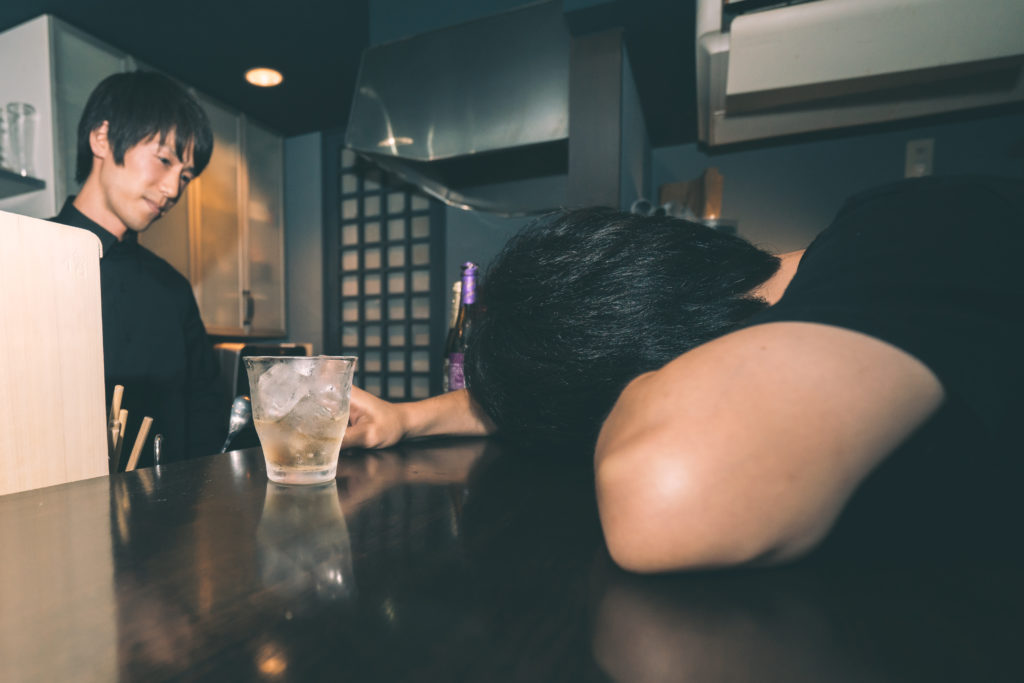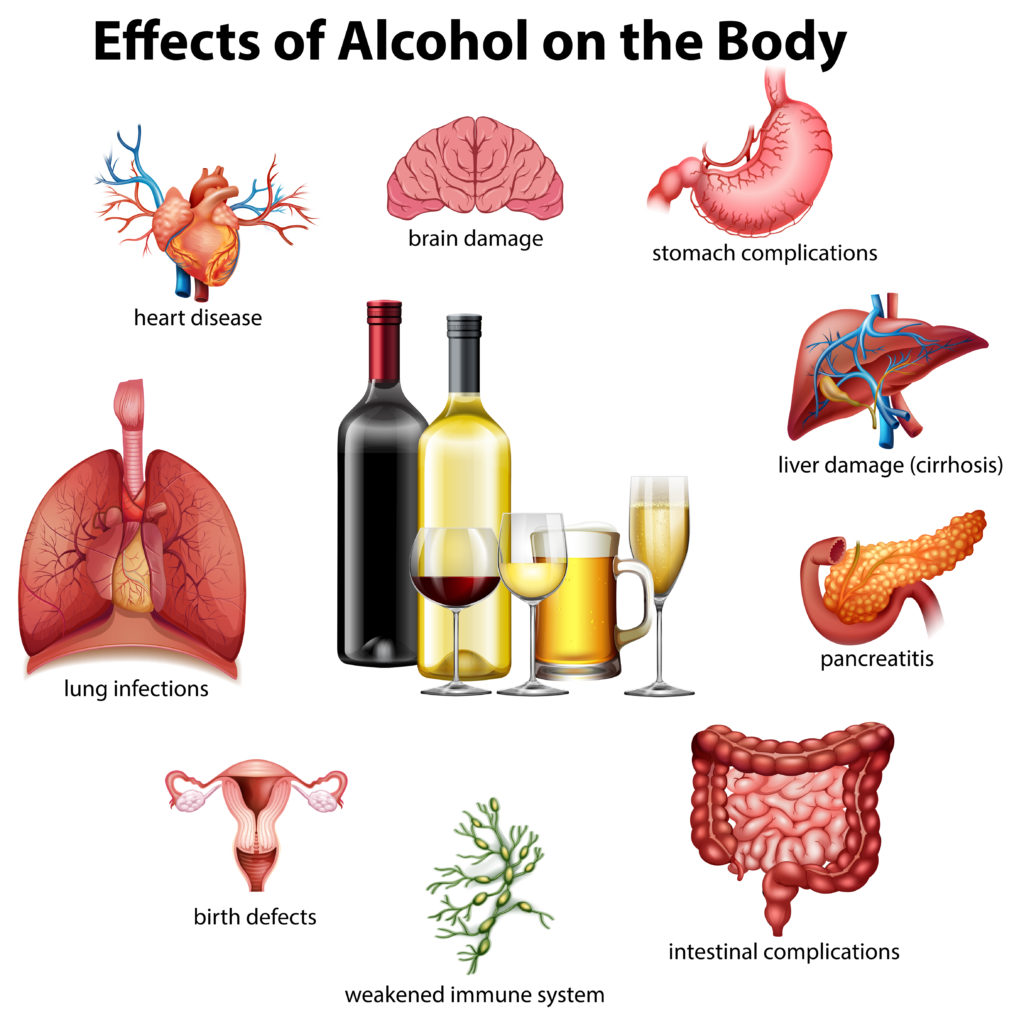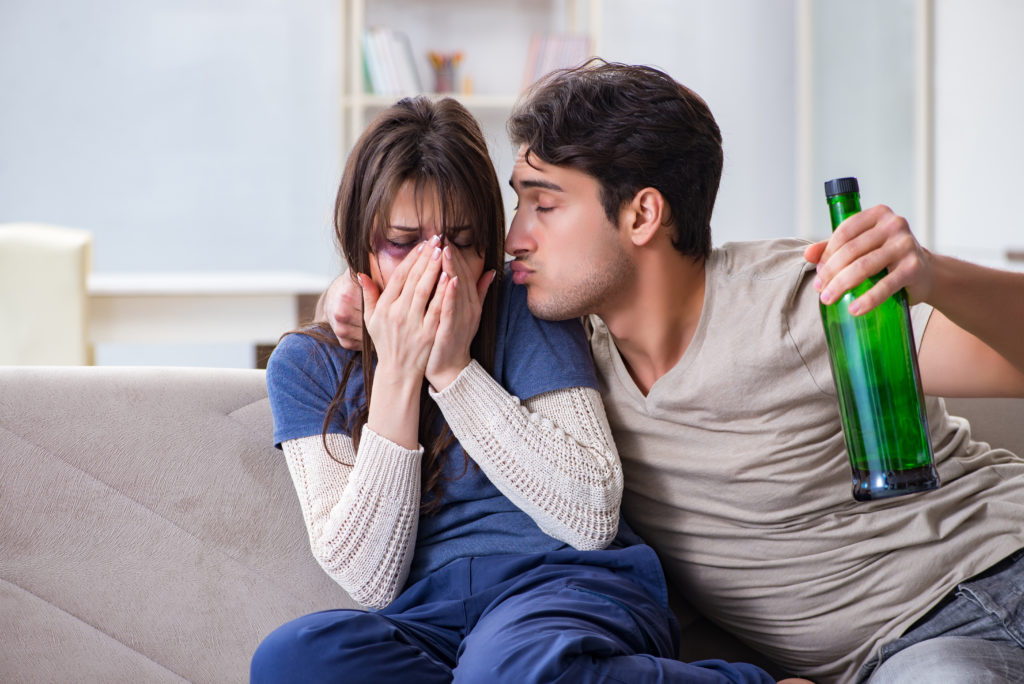How Do You Know If You Need To Stop Drinking?
For most people, the question of “if” they should stop drinking isn’t necessary. Rather, they just always know when to stop drinking. Anyone who consumes a healthy amount of alcohol generally knows the feeling when they reach their limit. They can easily stop drinking alcohol with no internal argument. Others, however, pay no mind to such limits and often over-drink until blacking out. If drinking has become an excessive habit that preoccupies your life and your thoughts on a daily basis, you may be one of those people who needs to ask, “should I stop drinking?”
[ctt template=”5″ link=”Rz0m9″ via=”no” ]Re-tweet – How Do You Know If You Need To Stop Drinking[/ctt]It is considered reasonable to go out with friends, coworkers, and loved ones once in a while to enjoy a few drinks. Feeling the mild effects of one or two drinks can calm awkward tension. Maybe it temporarily loosens up stored stress from a long week or brings the office introvert out of her shell a bit. However, consuming more than 4 or 5 drinks in two hours is in fact considered binge drinking. This is when you or someone you care about might have a drinking problem.
We all know “that guy” or gal who goes a little too far each time the party seems to be winding down. This person may be slurring their words obnoxiously, hitting on the innocent waitress, ordering another round, or even finishing other people’s drinks at the table without permission. He or she might be making a complete fool of themselves without any concern or care. They receive many weird looks from strangers or friends without taking any social cues into account.
Never noticed the person like this in your boozy friend group? You might be it.

Do I Need To Stop Drinking?
How do I know if I am an Alcoholic?
- You feel a need for alcohol in order to socialize freely.
- You binge drink with friends for fear that you won’t fit in if you stop drinking.
- Waking up hungover more than two days a week has become regular.
- Telling yourself, “I’m never drinking again” when you already know you’ll be drunk tomorrow and next weekend.
- Blacking out, vomiting, or forgetting what occurred each time you drink.
- Wrestling with unease if there is no alcohol available (i.e., church, relatives’ house, surgery, etc.).
- A need to restock your alcohol stash at home as soon as you run out.
- All your friends know you as the one who “goes too hard” at parties, shows, or bars.
- Waking up somewhere you have no idea how you got there.
- Wishing you could stop craving alcohol, but you can’t seem to stop drinking either way.
- You always think/say “I need a drink” in stressful or less-than-ideal situations.
- The only time you feel relief from reoccurring depression or anxiety is when you become intoxicated.
Why Should I Stop Drinking?
Do you want to stop drinking because you think it has become a problem for you? There are plenty of reasons why quitting will be of great benefit. As an illustration, let’s review the adverse effects that frequent over consumption of alcohol can have on an individual.
Physical Damages of Drinking Alcohol

The liver takes the most trauma resulting from too much intake of alcohol. The most common long-term ailments include fatty liver disease, alcoholic hepatitis, and cirrhosis. According to the Nation Institute of Health (NIH), nearly 50% of liver disease deaths are due to alcoholism annually. In 2009, alcohol liver disease was the primary reason for liver transplants. Nonetheless, those numbers are still increasing every year.
Alcohol is the third highest preventable cause of death in the United States. In fact, nearly 2,000 serious injuries leading to death per year are of alcohol-related accidental injuries, among college students alone.
Other common health problems include heart disease, brain injury, permanent skin and tissue damage, pancreas failure, and in worst case scenarios, cancer or death.
An NIAAA (National Institute of Alcohol Abuse and Alcoholism) study shows that more than a recorded 10% of children live with a parent who consumes too much alcohol. This could lead to neglect of the child’s needs and alcohol-related child abuse (emotional and physical). In many cases, the child could grow up with a continuation of adult alcohol abuse themselves.
Aside from the health aspects but equally as important, it can be a good reason to stop drinking alcohol to avoid negative emotional, relational, and spiritual consequences as well.
Personal Damages of Drinking Alcohol
Alcohol inhibits the Central Nervous System upon drinking. Hence this is why people exhibit slurred speech, impaired vision, dull movement, numbness/tingling, and perception deprivation, to name a few. Drinking leads to all kinds of other potential bad experiences. Car accidents, violence, getting lost, public indecency, spending money, self-injury, getting arrested, infidelity, sexual harassment, and date rape are all undeniably real consequences that happen.

Emotional Struggles
A lot of heavy drinkers often choose alcohol to numb themselves. There’s a difference between enjoying a drink occasionally in celebration, and depending on alcohol to escape. What do alcoholics try to avoid? Examples include past traumas, significant responsibilities, unpleasant feelings, or challenging experiences. The problem is, when somebody tries to self-medicate through drinking, they not only numb themselves from what hurts on the surface. In truth, they potentially numb themselves from chances of identifying more profound turmoil. This, in turn, can prevent them from personal growth through healing the pain. It could even prevent them from achieving new goals. Instead of living their potential, they can get lost in a trap of their coping mechanisms.
Relationship Issues
Domestic violence is more and more rampant in homes where one or more in the family cannot stop drinking. If drinking becomes a priority, especially to a parent, the spouse and children will suffer. Alcohol is a major leading contributor to violence since it inhibits logical thinking, emotional response, and sensory functions. The World Health Organization estimates through victim reports that 55% of domestic violence assaults happen after an intimate partner consumed alcohol. The person is not just damaging themselves through this behavior. They cause harm to their intimate partner, children, extended family, and close friends.
Relationships usually suffer when someone relies on drinking to cope. Necessities like honesty, quality time, trust, and caring provision are put on the backburner. When one person in a relationship or family suffers, the other(s) suffer with them. Authentic connection is what every person desires deep down. Where there is alcohol or any other substance addiction, this connection becomes broken. The loved ones can try to connect with the person needing to stop drinking. But they can only relate as closely as the addict will allow. An addict’s loved one can connect with them to the extent they stay connected with themselves. Usually, this is difficult because alcohol causes them to remain disconnected entirely.
Spiritual Emptiness
If the alcoholic was once spiritually involved, they might find it hard to reconnect with their beliefs now under the clutch of drinking. They could feel lost, unloved, hopeless, purposeless, or ashamed. Lacking the joy and peace they once received from a higher power can lead them further away. Such feelings can only continue the cycle of distancing from a higher power. Hence they will likely spiral further into the very destructive habits that cause that distance.
Instead of living in shame, it’s ok to admit you need help. Taking the first step in admitting to yourself, a loved one, or a higher power that you want a better life, free of alcohol, can be undoubtedly empowering.
How Can I Stop Drinking?
If you want to end your alcoholism and stop drinking now, take these steps:
-
Admit you have a problem and want to stop drinking.
Acknowledging the reality that you need help to stop drinking is the most important step. A person in denial about their drinking problem is not going to have an easy time quitting. Nor will they work to fix any personal issues that come up in the process. You can talk about your need to stop drinking with a close loved one or professional therapist. They can help you reach out further to heal your addiction.
-
If needed, seek medical assistance for alcohol detox.
Alcohol withdrawal can be a dangerous process. There are plenty of supportive, caring detox centers around the U.S. that can assist you in fully detoxing your body from alcohol. Once you detox, your body is stable enough for you to go back to daily life without physically needing alcohol. Hopefully, organs and immune system start to heal so you can get stronger. Meanwhile, you can then focus on taking further steps to sobriety.
-
Commit to staying sober by joining a rehab center or local support group.
An alcoholic or addict in isolation is the least promising path to sobriety. Receiving hope from an understanding community is crucial! Staying at a rehab center will help you learn how to confront any issues you need in a safe, supportive atmosphere. Most rehab centers are great at preparing the person to go back to a healthy life without the need for alcohol. You can select centers that are more long-term, retreat-like, and luxurious. Or, you can find rehabs that are more practical, casual, and in reach of your family and loved ones. Choose a center that is right for you. If rehab isn’t needed– if your alcohol dependency isn’t as severe as needing a detox or intervention– you can join anonymous support groups. This is a great way to connect with like-minded men and women. Find friends and sponsors who know what you’ve gone through and can hold you accountable in sobriety.
-
Stay involved with successful sober people you look up to.
Whether through support groups, church (if you attend), or other hobbies, surround yourself with people you admire. Listen to successful people share their stories. Stay inspired and responsible. Use the positive examples and life lessons of others who motivate you as a reminder that you too can always improve. Through hard work and success, you can inspire someone else with your story someday.
-
Cut ties with old friends who tempt you to go back to old drinking habits.
On the other hand, you should heed caution in who you hang out with for fun. If old drinking buddies always hit you up to go to bars, it’s probably best to be honest with them about your sobriety. Anyone who isn’t supportive of your decision to better yourself, in the long run, is most likely not a very good friend anyway. Don’t expect to keep your life the same minus the consumption of alcohol. To get real results, you need to see it as an opportunity for transformation. Change is good. Make decisions that your future self and family will be proud of.
-
Be aware of the negative symptoms that could come up.
After living any prolonged period dependent on alcohol, it will take time to get used to life without it. Your decision to stop drinking is a fantastic choice. Just stay aware of the effects you could experience after quitting. These can include anxiety, sleep disturbances, emotional triggers, change in appetite, mood swings, and even cravings for alcohol. These are all normal for the first few weeks or months of getting sober. This is also why it’s important to stay connected to your support groups. They can help you whenever you have moments of weakness.
If this article resonates with you or a loved one in any way, reach out. Here at Prevail Intervention, we offer resources for you on the path to recovery. Join us as we provide professional detox, drug and alcohol intervention, and drug & alcohol rehab assistance. It’s time to get sober and stop drinking today.

Great Article Chris